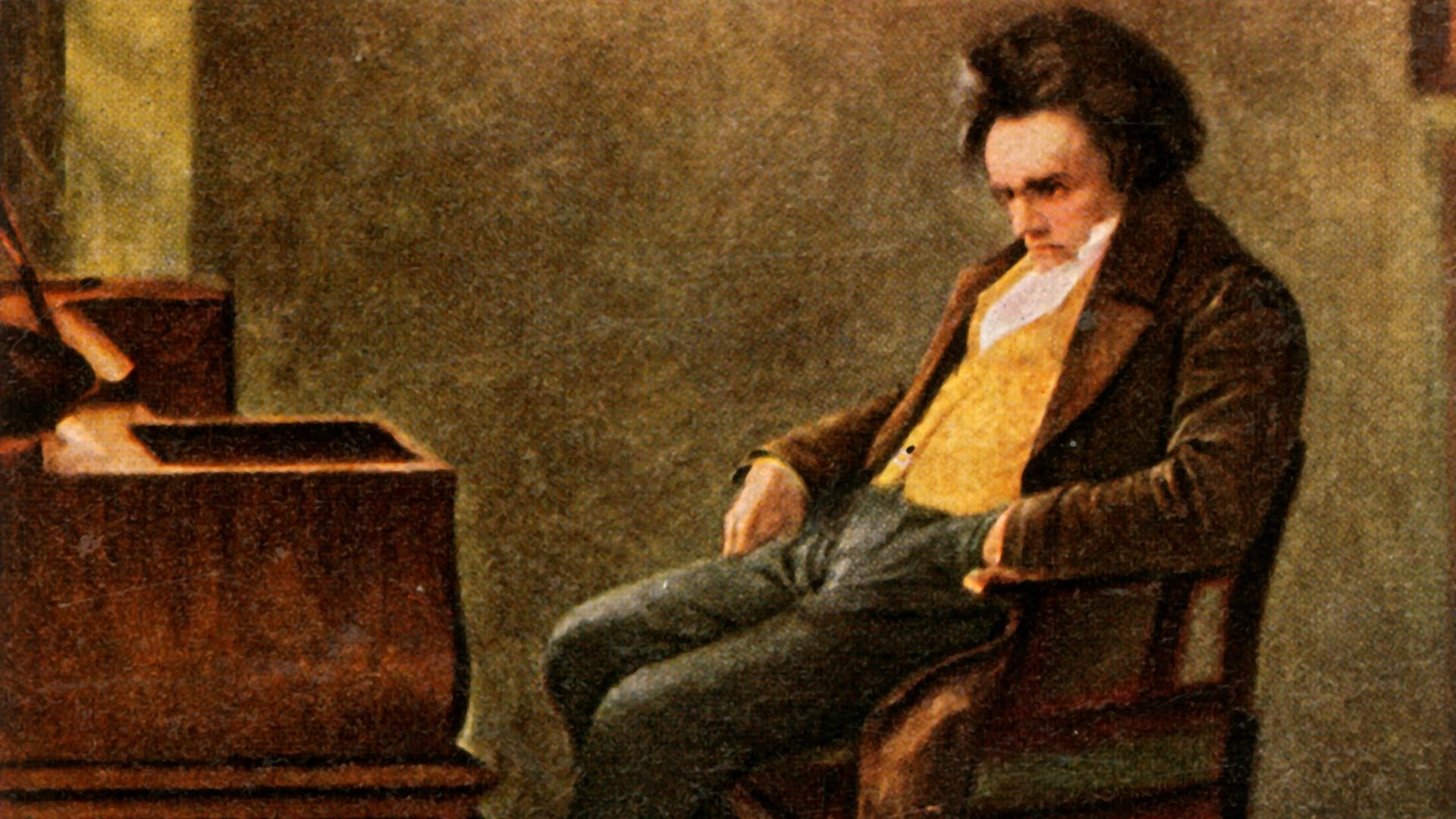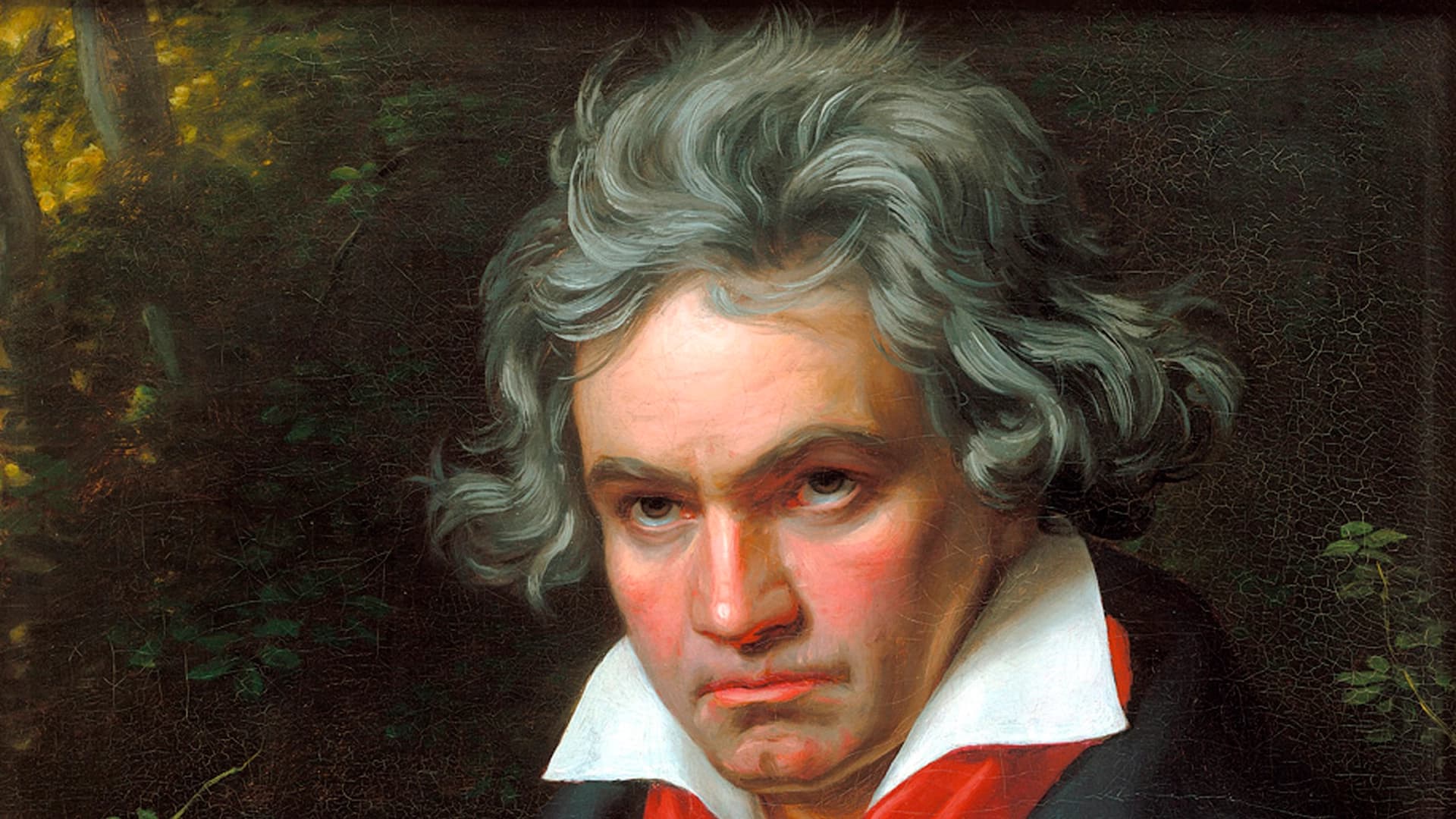
articles / Saturday Morning Car Tunes
Saturday Morning Car Tunes: Ludwig van Beethoven, Pt. I
Print Collector/Getty Images

Heritage Images/Getty Images
Listen to the episode!
Before Beethoven became a wild-haired, world-changing composer, he was a rebellious piano prodigy shaking up Vienna. He wasn’t just the next Mozart—he was out to prove he was something new. From his pianos sonatas to his very first symphony, hear how Beethoven’s journey kicked off!
Howdy, howdy, howdy! I’m Solomon Reynolds, and this is: Saturday Morning Car Tunes! This morning…
Ludwig van Beethoven is probably the most famous composer in Classical music history. You can still hear his influence today—his Pathétique Sonata inspired Billy Joel. What made him so famous?
Beethoven was born in 1770 in the small German town of Bonn to a musical family. He gave his first public concert when he was 7 years old. As a kid, the main piece he played was The Well-Tempered Clavier by J.S. Bach, difficult music for any adult. His first important teacher said Beethoven would “surely become a second Wolfgang Amadeus Mozart.” When Beethoven was 11, he published his first work, 9 Variations on a March by Dressler.
Beethoven was a naturally gifted pianist—skilled, powerful, and an excellent sight-reader. But his talent grew even more when he met other great musicians, like Johann Sterkel, a pianist known for his graceful, light touch. When Beethoven heard Sterkel play, it blew his mind. But Sterkel was just as amazed when Beethoven performed his own 24 Variations on an arietta.
At 21, Beethoven moved to the big city of Vienna to study with the famous teacher and composer Joseph Haydn, less than a year after Mozart died. A friend told him, “With help, you’ll receive Mozart’s spirit from Haydn’s hands.” Haydn really believed in Beethoven’s talent, but Beethoven was hard to teach and didn’t trust people easily. When Beethoven was about to publish his Op. 1 (a set of three piano trios), Haydn warned him not to add the third one—it was just too different. But that trio became the most popular, and it made Beethoven wonder if Haydn was trying to hold him back.
In these early years in Vienna, Beethoven wrote all sorts of music: concertos, trios, quartets, quintets, songs and arias, ballroom dances, ballet scores. But it was in Vienna that he premiered his Symphony No. 1, the first of nine that would change classical music forever.
Yet, during this time, Beethoven began to realize the greatest struggle of his life: he was going deaf.
As the world around him grew quieter, he shrunk away from social life and fell into a deep depression. Music became his only refuge—his lifeline. Beethoven made his name in Vienna as a pianist and improviser, mostly writing music for the piano. His sonatas were especially impressive; building on Haydn and Mozart with unique, deep emotion, you can almost hear his struggle is his Moonlight Sonata.
That music inspired John Lennon when he wrote the song “Because” for the Beatles. When the world feels quiet and heavy, Beethoven shows us that music will always be there.
I’m Solomon Reynolds. I write and produce Saturday Morning Car Tunes with research assistant Carolina Correa and audio engineer Stephen Page, only on Classical California. Tune in—or out of your car—next Saturday morning!





